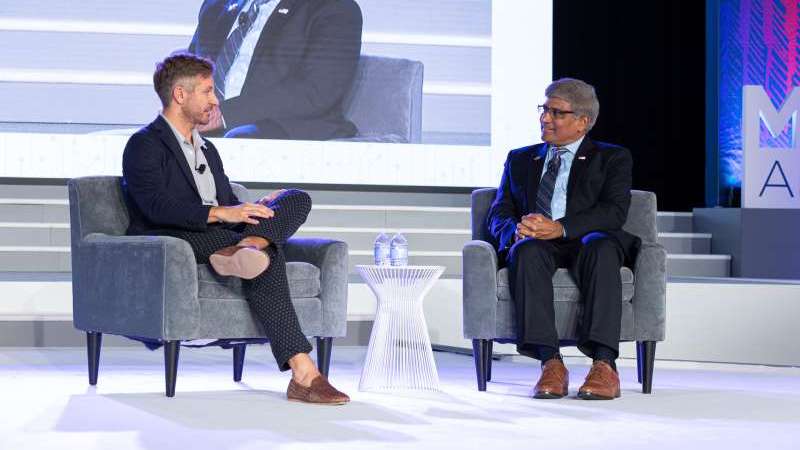
The United States is increasingly seen as one of the “important” leaders – rather than the uncontested leader – in science globally. But to reclaim the title of undisputed champion, the U.S. must bolster innovation by reigniting the nation’s interest in science, a top Federal science and technology official said today at the MerITocracy American Innovation Forum.
Dr. Sethuraman Panchanathan, director of the National Science Foundation (NSF), explained how science, investment, innovation and accessibility go hand-in-hand, and why it’s vital to leverage all three of those to secure the world-leading position.
The NSF director observed that scientific issues regularly garner bipartisan support in Congress – meaning that “the investments and resources are there” – but that the U.S. needs to also bolster the innovation side of the equation.
In the latest edition of NSF’s biennial Science and Engineering Indicators report – which compiles metrics on the state of science and engineering in the country – the agency said that strengthening the U.S. science and engineering enterprise is critical to maintaining the country’s position as a lead performer and collaborator in science and technology activities globally.
Panchanathan echoed that sentiment, and explained that bolstering innovation can be seen as the first step is fostering and unleashing domestic scientific talent, in addition to attracting highly qualified members of the workforce from overseas.
“I am a firm believer that talent and ideas are born every day across the United States. So, we need to figure out how to unleash that talent and bring those scientific ideas to the foreground,” Panchanathan said.
With those aims in mind, “NSF is intently focused on ensuring accessibility and inclusive thinking,” he said. “It’s a missed opportunity if we don’t take full advantage of all the domestic talent we have available. We have to bring together that full force of the domestic talent and the full force of the global talent to be that place of innovation.”
Ryan Heath, senior editor at Politico and moderator of today’s discussion with the NSF director, highlighted one major roadblock to bolstering innovation – we currently live in a time where science is challenged every day and the application of basic science has become increasingly difficult.
“We do see innovative ideas throughout the country when it comes to science. But we are also seeing a growing number of people who, in my opinion, question experts and question the science,” Heath said.
The solution to this challenge – and something that experts in the scientific field continue to fail to do – is communicate with everyday people about their work and what’s at stake as a result, Panchanathan said.
“We need to not be elitists. We need to relate science and technology to everyday Americans to show them how what we are working on affects their everyday lives,” he said. “Science is exciting, and we need to carry that excitement in everything we do. We need to spread that excitement and communicate that excitement.”
Panchanathan also highlighted the importance of sparking the interest of the younger generation by introducing more school-aged kids – especially girls – to science, technology, engineering, and mathematics- (STEM) related fields.
“As a young child I can remember seeing a moon rock and that little rock sparking my interest in science and that led me on a pathway to the sciences,” Panchanathan said.
“As a nation, we need to ensure that we are doing this for our kids – not just to build some sort of STEM pipeline workforce – but also to build a pathway where we allow people to enter and exit the science field, and therefore ensure innovation in science.”
